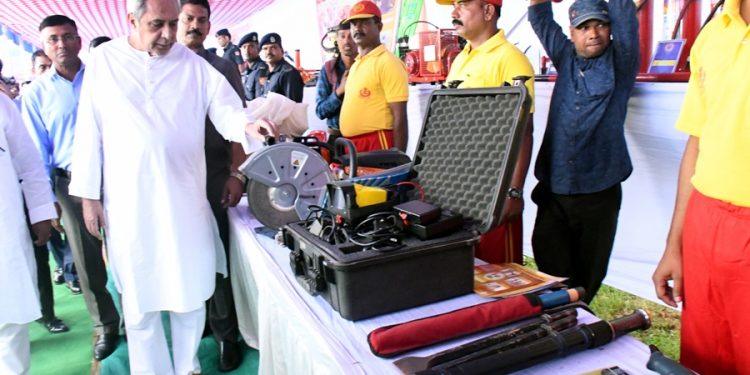Bhubaneswar: Odisha will try to build resilience at all levels in coming years to reduce the risk of future disasters, Chief Minister Naveen Patnaik announced here Tuesday.
Addressing a state-level function organised here to observe the Odisha Disaster Preparedness Day and National Day for Disaster Reduction, Patnaik said the state will focus on disaster-resilient public infrastructure and services, disaster-resilient houses for all, resilient livelihood and sustainable environment practices to minimise the risk of future disasters.
The recent disasters, the Chief Minister said, demonstrate the need for integrating the principle of resilience in every area of development planning and recovery process to achieve a substantial reduction in economic losses.
He said Odisha has set a global benchmark in handling disasters and it was fully prepared to face all possible eventualities in the face of calamities of highest magnitude.
The successful management of Fani and the robust rescue, relief and rehabilitation measures by public officials, volunteers, civil society organsiations deserve appreciation, Patnaik said.
The Chief Minister praised the Odisha State Disaster Management Authority (OSDMA) for effectively managing the disasters during its two decades of existence and extended his gratitude to the jawans of ODRAF, Odisha Fire Services, National Disaster Response Force (NDRF) and Odisha Police for their outstanding work.
State Revenue and Disaster Management Minister Sudam Marndi administered an oath to the people so as what to do in the event of a disaster.
Chief Secretary Asit Tripathy said the Union and state governments are constructing three lakh cyclone shelters in Puri and Khurda districts.
Tripathy said 20 years back the Super Cyclone had caused irreparable loss in which around 10,000 people died and properties worth crores of rupees were damaged. But now the state is fully prepared to combat disasters like flood and cyclones not only in evacuation but also in relief and rescue operation.
He said due to global climatic change drought is also regularly visiting the state. The government has targeted to bring 10 lakh hectares of land under irrigation in years.
So far 90 per cent of the target has been achieved, Tripathy said, adding that now the challenge is to win away the farmers from the paddy cultivation to horticulture and other cash crop.
Odisha Disaster Management secretary and the Special Relief Commissioner (SRC) Pradeep Jena said that of late landslide has emerged as a major natural calamity and posed a challenge to the state government to combat it.
He said the state government has asked the IIT-Mumbai to conduct a survey and identify the landslide-prone areas to help the government take precautionary measures to combat it.
The government, Jena said, would undertake awareness campaign to educate the people about the disaster and if necessary to shift them to safer areas. Even the urban flood is new challenge to tackle after global climatic change.
The SRC requested the IMD director general (DG) Mritunjay Mohapatra to install a radar in Bhubaneswar for accurate advance prediction of rain to help the government tide over the situation.
Jena said village disaster management plans are being prepared in nearly 10,000 villages in the first phase to have a state-of-art preparedness at the grassroots and enhance community resilience.
Volunteers such as Apada Mitra and taskforce members have been trained, alert siren towers have been installed in the coastline for Tsunami and cyclone warning. A web and Android based app ‘Satark’ has also been developed to predict disaster for the public.






































